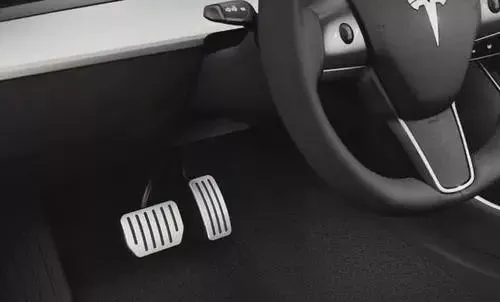On June 4, the U.S. automotive safety regulator announced in the latest regulatory document that it would intensify its investigation into Tesla. Previously, the agency received 758 complaints called "phantom braking", that is, Tesla suddenly braked at high speed. According to the regulatory documents, the number of "phantom braking" complaints against Tesla cars produced in 2021 and 2022 increased from 354 in February to 758, which prompted the National Highway Traffic Safety Administration (NHTSA) to require Tesla to respond before June 20.
If it does not respond in time, the automaker will face a fine of up to $115million.

It is reported that the investigation involved about 416000 models 3 and models y. at present, there are no reports of crashes or injuries caused by the above-mentioned braking problems. These vehicles are equipped with partially automated driver assistance functions, such as adaptive cruise control and autopilot, so that they can automatically brake and steer in the lane.
However, NHTSA said in the published document that these vehicles may brake accidentally when driving at high speed. The agency said: "complainants reported that sudden deceleration and braking may occur without any warning, and often occur repeatedly in a single driving cycle." Many of the car owners in the complaint said they were worried about a rear end collision on the highway.
This investigation is the latest among many investigations conducted by the U.S. automotive safety regulatory agency against Tesla Motors, including the Tesla driver assistance driving system autopilot and its advanced version of "full automatic driving" (FSD) software. Although the name is easy to be misunderstood, in fact, neither of the two software can drive the vehicle automatically without human driver supervision.
This is the fourth formal investigation conducted by US regulators against Tesla in the past three years. NHTSA is monitoring 15 Tesla recalls since January 2021. In addition, since 2016, the agency has sent investigators to investigate at least 33 crashes involving Tesla owners starting autopilot launch, and 11 people have been killed in the accidents.
In the latest complaint, a Tesla owner from Austin reported that his model y with autopilot had repeatedly applied automatic brakes for no reason when driving on two lane roads and highways.
The owner wrote in the complaint letter submitted on February 2: "these phantom brakes include slow braking at deceleration to emergency braking at high speed. They greatly reduce the speed and pose a threat to my personal safety, the passengers in the car and the passengers who may follow me."
Multiple recalls for various reasons
Just last week, NHTSA asked Tesla to recall nearly 579000 vehicles in the United States, because the "Boombox" function can play sound through external speakers and give a fuzzy sound warning when pedestrians see a vehicle coming.
Michael Brooks, acting executive director and chief legal counsel of the nonprofit Center for automotive safety, said: "the fact that so many complaints have been received in a short time indicates that NHTSA should intensify its investigation. Every month, hundreds of car owners report that their emergency braking system has been wrongly activated, and there may be more people who have not reported this problem to NHTSA."
He also said that it was encouraging to see NHTSA's enforcement actions against Tesla. But Brooks said that Tesla has always released software to cars driving on American roads, and these software have not been tested to ensure its safety.
Brooks wrote in an e-mail: "a piecemeal approach to every issue of concern will not solve the bigger problem in Tesla's safety culture. The company continues to be willing to test its technology on the American public and distort the performance of its vehicles."
Tesla recently recalled many vehicles due to other problems, such as slowing down when encountering stop signs, the heating system can not quickly clean the windshield, the driver will not be warned if he does not fasten his seat belt, and the driver is allowed to play movies on the touch screen while driving. These problems should have been solved by online software updates.
Last August, NHTSA announced that it would investigate Tesla autopilot because it failed to find emergency vehicles parked on the road. The survey covered more than a dozen crashes that resulted in one death and 17 injuries.
There are precedents for braking problems
Before the latest investigation, Tesla recalled nearly 12000 vehicles in October last year due to similar phantom braking problems. The company released an online software update to fix the failure of its FSD software. Last September, Tesla carried out a software update to improve the recognition of emergency vehicle lights in low light conditions.
Many selected Tesla drivers have started testing FSD software on public roads. The company warned that the driver must be ready to take over at any time because the car is not yet self driving. NHTSA also requires Tesla to provide information about vehicle testing, including information Tesla requires testers to keep confidential.
Safety advocates complain that Tesla should not be allowed to test its technology in traffic with untrained drivers, and that Tesla's software may fail, putting other drivers and pedestrians at risk. Most other car companies with similar software will test with trained human safety drivers.
NHTSA said in a statement in August 2021: "NHTSA reminds the public that no commercial motor vehicle can drive automatically at present. Currently available vehicles require human drivers to be ready to take over control at any time, and all laws require human drivers to be responsible for the behavior of vehicles." (small)